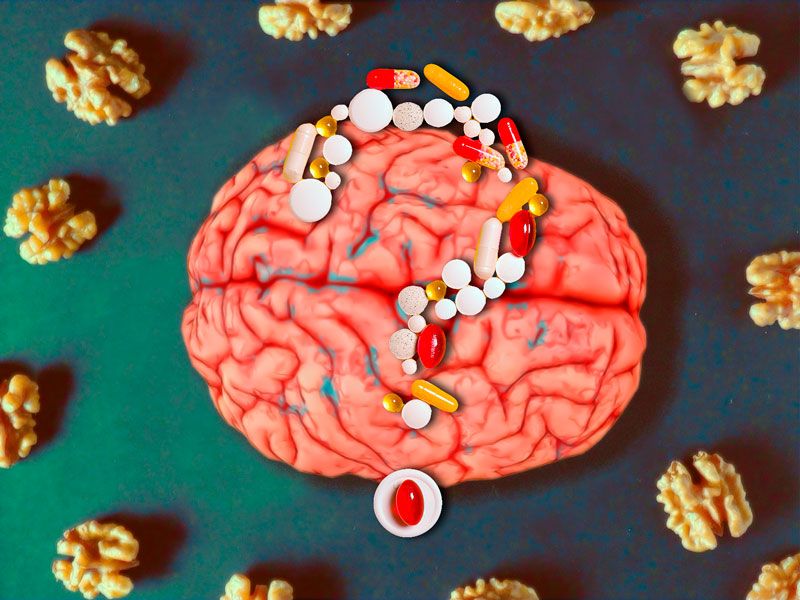Microdosing refers to the practice of taking sub-perceptual doses of psychedelic drugs like LSD, DMT, and psilocybin. The idea is that the user will get some of the cognitive-enhancing and mood-lifting effects without the perception changes that are associated with psychedelics.
What is Psychedelic Microdosing?
Psychedelic microdosing first became popular during the 1960s, when drugs like LSD exploded onto the scene and led the counter-culture movement. However, the fact that naturally occurring psychedelics have been around for thousands of years means the first microdoses were probably dropped long before the days of The Beatles and Jimi Hendrix.
As the name suggests, a microdose is just a very small dose of a drug, usually around 1/10th or 1/20th of a typical recreational dose.
How Much is a Microdose?
A microdose is a loosely defined dose. It largely depends on your tolerance, personal experience, and the kind of effects you’re looking for.
A microdose of psilocybin-containing mushrooms is usually around 0.10 to 0.35g of dried shrooms.
Lysergic acid diethylamide (LSD) is much harder to microdose, as recreational doses are measured in micrograms. Users often purchase “tabs” (pieces of blotter paper) and then cut them into multiple segments.
A microdose of DMT is typically defined as being less than 10mg.
Microdosing has also been reported with drugs like iboga, a strong hallucinogenic that has shown promise in modern clinical research relating to opioid addiction and withdrawals. MDMA may be microdosed too, and some people even take very small doses of psychoactive substances like cannabis and amphetamine.
What are the Effects of Microdosing Psychedelics?
In 2019, researchers tracked the experiences of 98 people who regularly microdosed with psychedelic drugs. The individuals were given daily ratings of psychological functioning over a six-week period, and 63 participants were measured on factors like mystical experiences, creativity, and attention.
The study noted an increase in all reported psychological functioning, but this only applied to dosing days and there were no residual effects. However, researchers recorded general decreases in depressive symptoms and stress, as well as an increase in attention.
There have been many other studies on the effects of LSD and magic mushrooms, and these have suggested that psychedelics can be used in the treatment of everything from end-of-life anxiety to substance use disorders, treatment-resistant depression, and even obsessive-compulsive disorder. However, there have been very few placebo-controlled studies on the effects of microdosing.
One of the most interesting studies was conducted in 2021. It used a “self-blinding citizen science initiative”, whereby existing psychedelic users were given instructions on how to incorporate placebo control into their usual routine.
There were 191 participants in total and the study looked at changes in psychological outcomes over a 40-week period.
Researchers found that the microdosing group had improved significantly during the trial period. However, an improvement was also noted in the placebo group.
As far as this study is concerned, there was no difference between the placebo effects and microdosing effects in the long term.
However, we know that microdosing produces positive effects and we also have a lot of anecdotal reports suggesting that small doses can improve cognitive function, confidence, mood, and more.
So, we’re really no further forward and future research is required before we can truly understand if microdosing provides any beneficial effects.
What are the Benefits of Microdosing Psychedelic Substances?
Microdosing psychedelics seems to provide different benefits for different users. Some claim that low doses of LSD and magic mushrooms improve their mood and confidence. Others claim that it helps them with their creativity and work ethic.
The reason people microdose and the situations in which they do it can vary greatly, from working to doing chores, playing video games, and engaging in creative pursuits.
Individuals in Silicon Valley have claimed that major tech innovators and billionaire business owners microdose psychedelic substances on a regular basis.
Apparently, they use it to help them solve problems and improve productivity.
Some anecdotal reports suggest that microdosing can even help with substance abuse, supporting drug users as they wean themselves off addictive drugs.
It may alleviate some withdrawal symptoms and could provide the clarity needed to beat cravings. However, if you are in the midst of acute withdrawal from benzodiazepines or opioids, it’s not wise to start dropping psychedelics. Withdrawals can put you in a very vulnerable state and psychedelics may just add fuel to the fire.
Psychedelic microdosing could provide some mental health benefits, though as noted above, clinical trials suggest there are only minimal residual effects, so it may not be beneficial in the long-term.
What are the Risks of Microdosing?
There are mental health concerns regarding psychedelic drug use. Theoretically, these shouldn’t be as much of a risk with microdosing, but it’s still best to avoid microdosing psychedelics if you have schizophrenia, bipolar disorder, or a history of psychosis.
There may also be a chance of psychological addiction. Psychedelics are generally not considered to be addictive in the same way as opioids, cocaine, and many other recreational drugs. However, if you microdose every day and come to rely on that dose to get you through, it becomes a habit.
Can Microdosing Psychedelics Cure Depression?
There is some anecdotal evidence suggesting that microdosing can greatly improve an individual’s outlook, and some have even suggested that it could be a cure for depression and depressive disorders. But there hasn’t been a great deal of studies on these effects, and the ones that we do have don’t show any statistically significant differences.
Summary: Microdosing Psychedelic Drugs
Psychedelic microdosing is not for everyone. The risks may be less than those associated with typical recreational doses, but you’re still taking a drug and it can still alter your mood, thoughts, focus, energy levels, and perceptions. Psychedelics need to be treated with respect, and that’s true whether you’re going all-out in search of ego death or using the lowest possible microdose.
